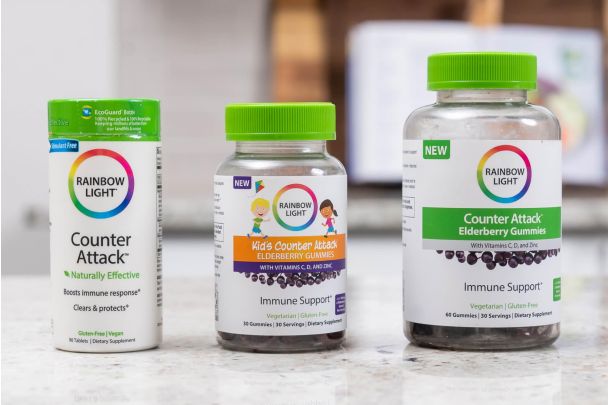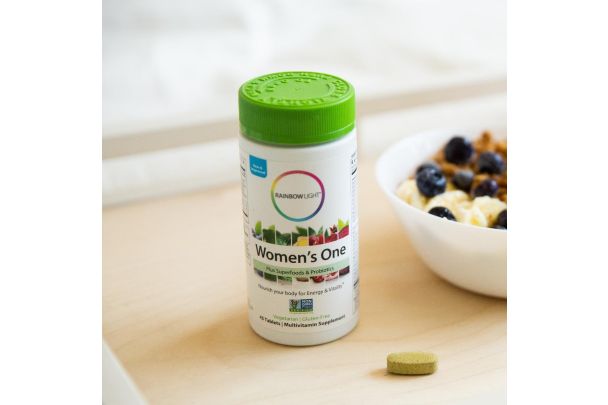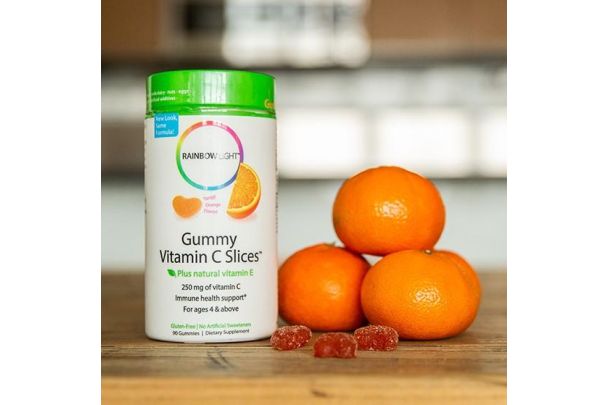Your immune system is faced with challenges every day that can test its mettle. However, if you start with a strong foundation of support, your body is better able to address those hurdles and keep you feeling your best.
Before we talk about the benefits of taking a daily multivitamin supplement to support immune health, it helps to understand what the immune system is and what it does for the body.
What is the immune system?
The immune system is a network of cells, tissues, and organs located throughout the body that work together to keep you healthy—essentially a built-in defense system.
Your natural immune defenses include white blood cells (also called leukocytes), which maintain immune health by destroying foreign invaders and producing health-promoting antibodies, along with the beneficial bacteria in your gut that work to maintain a balanced internal environment.
Because inadequate nutrition is among the most common causes of a weakened immune system, experts agree that supporting optimal immune function begins with making sure we consume the essential vitamins, minerals, and other key nutrients necessary for immune health—including the following.
- Vitamin A
Vitamin A is an antioxidant that plays a role in the function of various immune cells and the promotion of a healthy antibody response. In addition, vitamin A is essential in maintaining the integrity of tissues that provide a barrier to unwanted organisms.
- Vitamin B6
Research has shown that vitamin B6 keeps the immune system healthy by helping to make sure it responds appropriately to external challenges.
- Vitamin C
Vitamin C is an essential antioxidant and perhaps one of the most well-known nutrients for supporting immune health.
- Vitamin D
Alongside vitamin A, adequate vitamin D levels are essential in supporting a healthy immune response. According to the National Institutes of Health, the immune system needs vitamin D to fight off invading bacteria and viruses.
- Vitamin E
Another powerful antioxidant, vitamin E helps the body maintain normal immune function in people of all ages, including in the aging and elderly. Vitamin E also plays a role in protecting cells from oxidative stress.
- Folic acid/folate
Folate is an important B vitamin needed to make RNA and DNA, critical to making new immune cells. Consuming adequate folate can support healthy immune function.
- Iron
Iron plays an important role in our body’s immune response. Maintaining a healthy iron intake can help support immune health.
- Selenium
Another mineral, selenium is required by several key enzymes that function as antioxidants. Adequate intake of selenium is needed to support and regulate several facets of the immune system.
- Zinc
Zinc is involved in numerous cellular processes. As an antioxidant, zinc plays a role in supporting the immune system. Inadequate zinc levels may impair normal immune function.
And don’t forget about probiotics!
At least 70 percent of our immune system is located in the gut, where beneficial bacteria work to maintain a healthy microbial balance. Probiotics are live microorganisms you can consume, either through diet or supplementation, to support your digestive health.
The right multivitamin can make sure you don’t fall short in one or more of these immune-supporting nutrients.
In a perfect world, we would all get the good stuff our bodies needed from our daily diet. However, because the standard American diet falls short in many ways, taking a daily multivitamin is a great way to help fill in the gaps and make sure your body—including your immune system—gets the support it requires.*
Just like any part of the body, the immune system responds positively when it is treated well. Look for a multivitamin supplement that contains some or all of these essential vitamins, minerals, and other important nutrients.











Share: